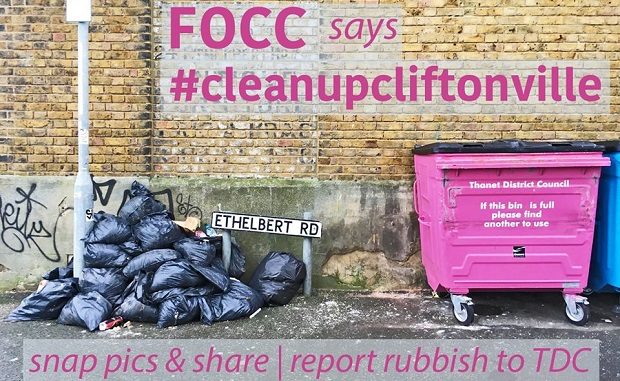
Streets ‘overflowing with rubbish’ and blighted with dog fouling and flytipping has prompted a community group to demand action.
A Clean Up Cliftonville campaign has been launched in a bid to gain more enforcement and a range of improvements.
The Friends of Cliftonville Coastline are urging people to upload photographic evidence of the mess in their streets to social media with a #cleanupcliftonville hashtag.
Photos already posted to the campaign show flytipped sofas and trolleys and mounds of litter throughout streets and alleys in Cliftonville.
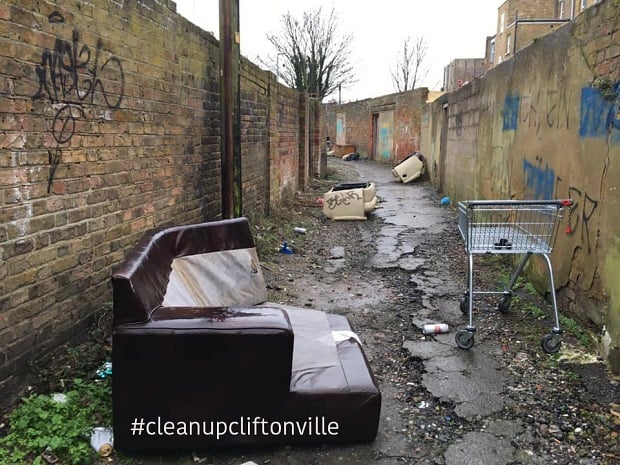
In a statement FOCC say: “During the Turner Prize local residents were pleased and relieved to welcome a noticeable improvement in the cleanliness of Cliftonville.
“Sadly this has deteriorated over the past few weeks, and residents have reached breaking point as streets overflow with rubbish.
“FOCC has submitted an FOI requesting more details about TDC’s current waste strategy.
“We demand that Gavin Waite, Director of Operational Services, implement better solutions to deal with flytipping, litter and dog fouling.”
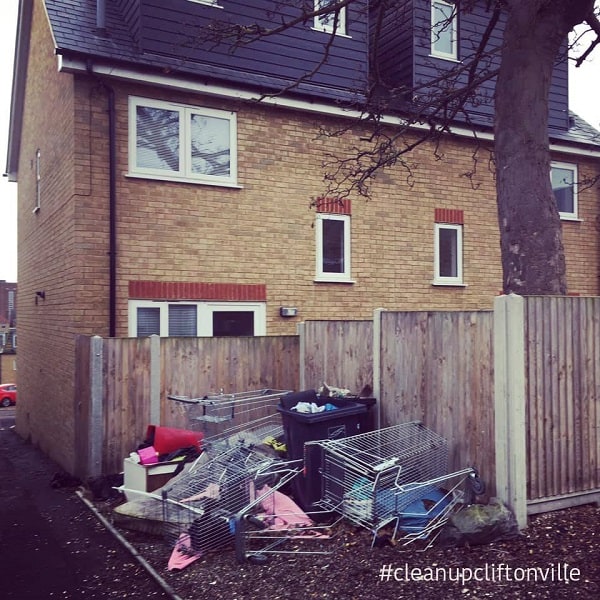
Among the measures the group is asking for is better signage, community engagement and education, particularly concerning the perils of pollution to wildlife and free or subsidised collection services for poorer residents and/or free regular community collections.”
Further suggestions include a swap shop, to ensure that usable items are offered to those in need and reused by the community, rather than ending up in landfill and targeted enforcement and bigger fines aimed at businesses and slum landlords.
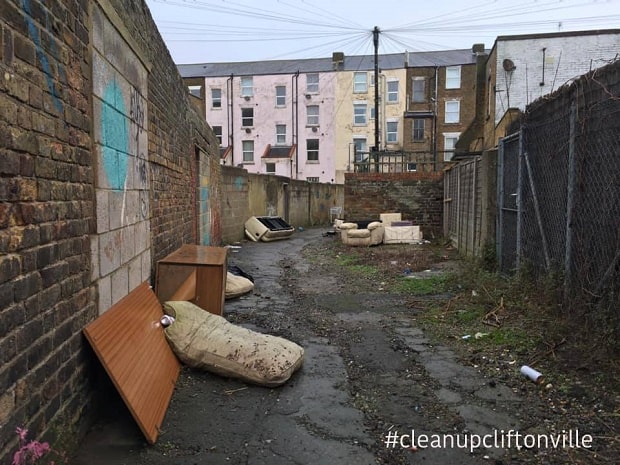
Dedicated dog fouling enforcement and alleyways officers and a fit for purpose recycling service are also requested.
In the 2018/19 financial year Thanet council carried out 3,755 enforcement investigations into litter and waste offences and teams cleared 3,500 tonnes of waste from isle beaches, 100 tonnes of fly-tipped rubbish, emptied 900 tonnes of rubbish from bins and cleared 840,00 tonnes of detritus during street sweeping.
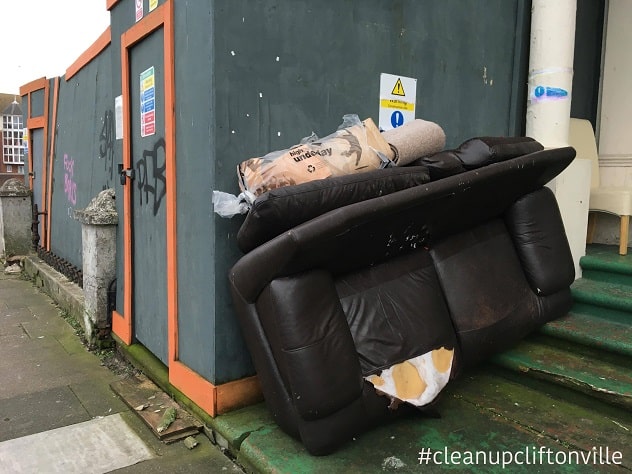
There were 69 fines for £400 and 25 people successfully prosecuted for flytipping; another 67 prosecutions made against those who failed to pay fixed penalty fines; 190 enforcement notices handed out for waste and pest damage; 772 environmental protection notices served; 60 trade waste notices given out and 107 community protection warnings plus 20 community protection fines of £100 were served.
However recycling was below the 50% that is a requirement under UK and EU law.
According to the latest government figures Thanet council has a way to go. The percentage of refuse sent for recycling for 2017/18 was 33.84% and for 2018/19 it was 36.30%.
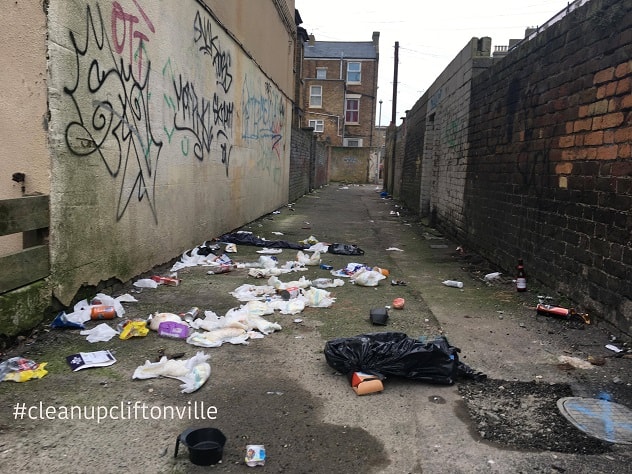
Measures being introduced from April 1 as part of the budget package do include employing 10 new permanent staff to improve street cleaning and expanding the green waste service although a vacant Waste & Recycling Education Officer post will be axed.
The latest corporate performance report at TDC, for July-September 2019, says seven percent of streets are below the acceptable level for litter – missing the 5% target.
Th percentage of household waste sent for reuse, recycling and composting was 35% against a target of 36.4%.
Missed bin collections are flagged red with 0.33% missed compared to a 0,15% target but Thanet council hopes to tackle this with a £2.25million investment in 20/20-21 in a vehicle and equipment replacement programme for Operational Services. There will then be a further £1.5million the following three years.
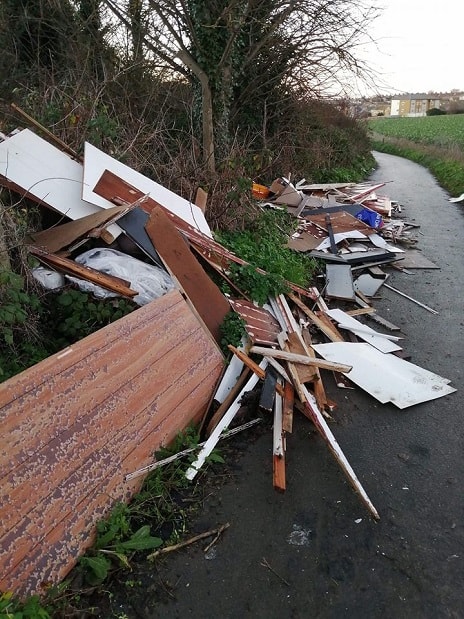
In a report to councillors it says: “We continue to work hard to keep missed bins to a minimum, however, we are seeing an increasing trend of missed bins because of challenging issues, such as vehicle breakdowns with our ageing fleet and the ongoing challenges of road access issues for our larger 26 tonne tri-stream lorries.
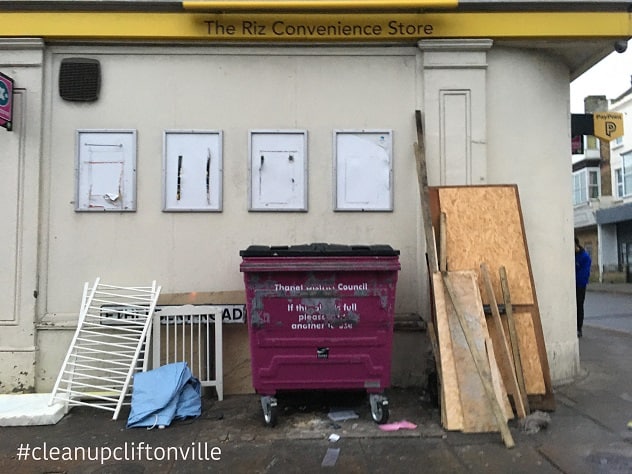
“The vehicle replacement programme is helping to tackle this as, when delivered, the new vehicles will be more flexible and agile. The missed bin collection averages less than 100 missed bins per day out of around 18,000 successful daily collections.
“The imminent introduction of a live in-cab reporting system will enable crews to record bins not presented in time for collection, which we anticipate will reduce the number of reported misses. We have experienced significant issues with access to roads having contractors onsite, road works for utilities such as Virgin Media in particular which accounts for the increase in reported misses.
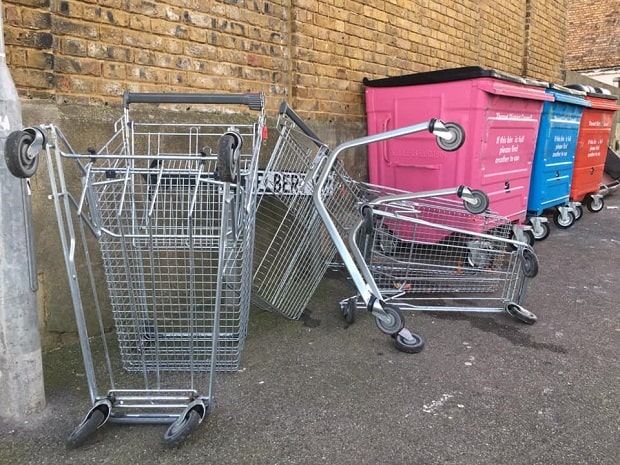
“Roads are returned to with a smaller vehicle at the earliest opportunity. We expect the number of misses to drop significantly this year with the arrival of the new fleet, in cab technology and round reviews.”

Ward councillor Alan Currie said an enormous amount of time and effort has been put into resolving litter and flytip issues.
He said: “Myself and officers from enforcement and street cleaning have been working overtime for both Athelstan and Ethelbert roads and have achieved extra rubbish collections and got the recycling up and running again. The masses of fly tipping is nearly always picked up within a day or two but a quick photo paints a thousand words.
“We have targeted problem areas such as Grotto Hill s well as Athelstan and Ethelbert roads, increased paladin bin collection in Athelstan Road plus getting the recycling rota working efficiently in this area. We would encourage more residents to recycle now and report any fly tipping as soon as possible especially if CCTV covers that area.”
To find out more about the Clean Up Cliftonville campaign visit the FOCC facebook page here
The national picture
For the 2018/19 year, local authorities in England dealt with over 1 million (1,072,000) fly-tipping incidents, an increase of 8% from the 998,000 reported in 2017/18.
• Nearly two thirds (62%) of fly-tips involved household waste. Total incidents involving household waste increased by 2% from 2017/18.
• Consistent with previous years, the most common place for fly-tipping to occur was on highways (pavements and roads), which accounted for almost half (46%) of total incidents in 2018/19. The number of highway incidents has increased by 6% from 2017/18.
• As in the last few years, the most common size category for fly-tipping incidents in 2018/19 was equivalent to a ‘small van load’ (33% of total incidents), followed by the equivalent of a ‘car boot or less’ (30%).
• In 2018/19, 36,000 or 3% of total incidents were of ‘tipper lorry load’ size or larger, which is similar to 2017/18. For these large fly-tipping incidents, the cost of clearance to local authorities in England in 2018/19 was £12.9 million, compared with £12.2 million in 2017/18.
• Local authorities carried out 499,000 enforcement actions in 2018/19, an increase of 5,000 actions (1%) from 2017/18.
• The number of fixed penalty notices issued has continued to increase, up 11% to 76,000 in 2018/19. This is the second most common action (after investigations), and accounted for 15% of all actions in 2018/19.
• For 2018/19, 12,000 (16%) of fixed penalty notices were issued specifically for small scale fly-tipping, 37,000 (48%) in relation to littering and 26,000 (35%) in relation to other offences.

